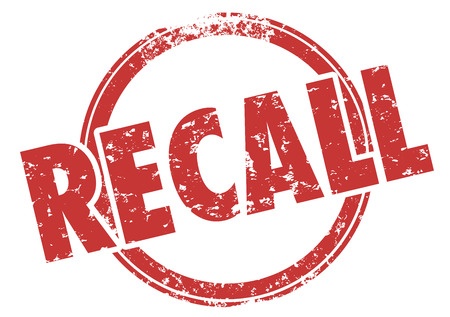Keeping Up With Vehicle Recalls
In 2016, vehicle recalls reached an all-time high at 53.2 million vehicles. This was a 7 percent increase over the previous high of 51.1 million in 2015. Specifically, over 42 million vehicles were affected by faulty airbag inflators. This marks the largest American safety recall of all time and leading to at least 16 deaths.
2017 isn’t looking much better as Mercedes-Benz has already recalled 300,000 vehicles due to a fire risk. General Motors has already recalled several thousand cars because of faulty connectors that can lead to power steering loss and collisions.
Unaddressed Vehicle Recalls on the Rise
As of March 2017, there were over 63 million vehicles with unfixed recalls in the U.S. alone. According to Carfax’s Top 10 Cities for Open Recalls in Each State, 25 percent of the vehicles in Mesa are being driven with open recalls that have not been addressed. Surprisingly, it is family oriented vehicles (vans and SUVS) that make up a great percentage of these vehicle recalls. This means that every day, millions of children are at risk of dying or being injured in recall related collisions that could very well be avoided.


Because of the increased risk of serious accidents related to recalls, it is extremely important for drivers to keep themselves updated on manufacturer recalls and make any repairs quickly. But where should consumers begin?
Aware, Connected, Proactive
Although some drivers are aware that their vehicles are on a recall list, many are clueless when it comes to this issue. Most recalls are fixed for free at the manufacture’s expense if addressed early enough. However, there are sometimes mileage and time caps that can stop a vehicle from being repaired in instances when the owner waits too long.
For example, in 2016, Hyundai had a vehicle recall for several of it’s models because of motor issues. Others were not recalled but given extended warranties in which the motor issues could be fixed. Many Hyundai owners who did not get their vehicles repaired when the warranties was first issued were left with broken down vehicles and motor repair bills. These costs were in the thousands after the repair window passed.
To avoid a similar fate, vehicle owners can take three specific steps that to increase their personal vehicle safety. These are: be aware, be connected, and be proactive.
Carfax.com lists the following recall issues as the most common:
- Exploding airbag inflators
- Axle/steering components
- Brakes, tires, and wheels
- Defective seat belts
- Engine parts
- Electrical/internal computer systems
- Overheating/technical defects
- Sticking parts
It’s easy to imagine how a deadly collision could be caused by sticking accelerator pads and snapping axles. This makes it important to stay aware and proactive with repairs. Make sure to keep your information (phone number and address) up to date with your car’s manufacturer. It is the manufacturer and not the individual dealerships that will alert you of a recall.
Also, spend some time reviewing The National Highway Traffic Safety Administration (NHTSA)’s user friendly website as it is a hub of vehicle recall information. Proactive drivers can file safety complaints, read investigative reports, and search for vehicle recalls all in one place. The NHTSA provides a VIN search tool that allows vehicle owners to search for recalls specific to their vehicle as well as a sign-up feature that will send out an email alert in the case of a recall.
We here at Orlando Auto Body are capable of taking care of all of your collision related repairs, we strive to help our customers improve their vehicle safety and avoid collisions altogether. If you are concerned about a specific recall or are involved in a recall related crash, reach out to us at (480) 485-4653.

